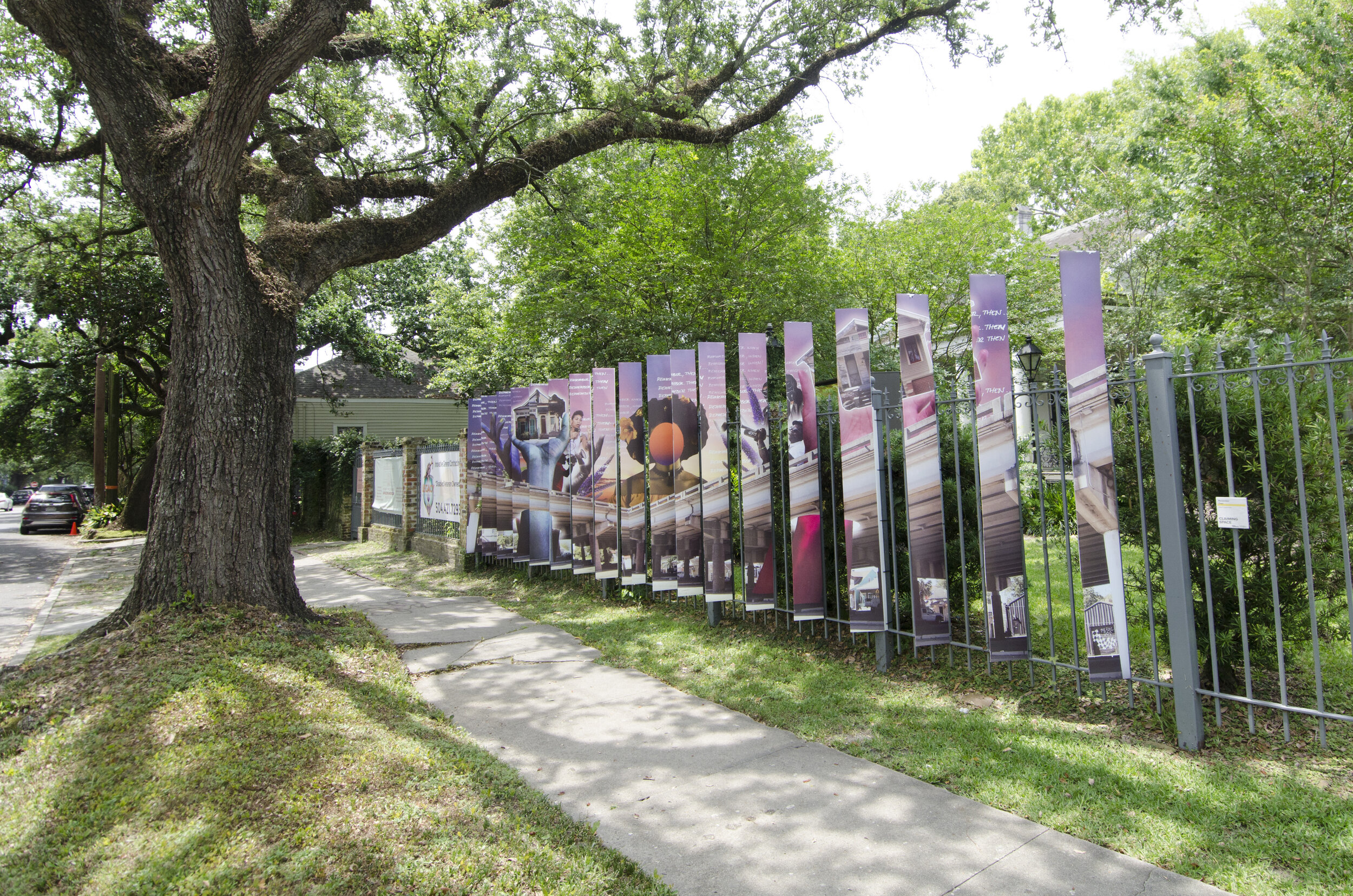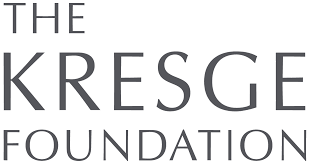About Colloqate
Remember Then, Remember When Installation at the New Orleans African American Museum.
Mission & Vision
The language of the built environment tells a complex story of place that can either speak to our collective values and ideals or reveal persisting inequity and injustice.
The struggle for human and civil rights is one that has largely evaded the design profession and we have framed our work around addressing this void. Established in 2017, Colloqate Design is a multidisciplinary Design Justice practice focused on expanding community access to, and building power through the design of social, civic, and cultural spaces. Our mission is to intentionally organize, advocate, and design spaces of racial, social and cultural equity.
We believe that to design is to have an unyielding faith in the potential for a just society. It is an act of individual and collective hope requiring, not only, an awareness of true inequity, but a compulsion to speak out against it in its many forms. Our work speaks to the potential for equitable spaces and attempts to visually and physically represent our collective aspirations for the future.
The Context
Our values are validated through the spaces and places we invest in building. We acknowledge that the system of racism manifested in the physical environment decimates neighborhoods, communities, and regions; blocking communities of color from accessing specific geographies or services, reinforcing legacies of segregationist policy while damaging efforts to create economic inclusion and ecological resilience.
This ongoing exclusion has wide-spread negative impacts on individual and community well being: safety and quality of life, employment and economic prospects, health outcomes and life expectancy, access to high-quality education, nutritious food, and basic services. The struggle for social and civil rights is one that has largely evaded the design profession and we have framed our work around addressing this void. Equity requires recognizing the role of histories of inequity in shaping our society and actively addressing the ongoing effects of those legacies as well as working to dismantle barriers to opportunity, access, and inclusion moving forward.
Definition
Colloquial + Locate + Collocate: Colloqate
col·lo·qui·al : adjective (of language) used in ordinary, informal or a familiar conversation; not formal or literary. Conversational. Informal
lo·cate : verb 1. discover the exact place or position of. 2. Situate in and of a particular place. 3. place within a particular context
col·lo·cate : verb 1. (of a word) be habitually juxtaposed with another at a frequency greater than chance. 3.place side by side or in a particular relation.
col·lo·qate : A familiar design dialogue situated in and of particular place. Considering people and place habitually juxtaposed with one another at a higher frequency than chance.
Theory of Practice
For nearly every injustice, there is an architecture built to sustain and perpetuate it. At the root of our climate crisis is an infrastructure that exhausts 39% of our carbon emissions and demands 40% of our energy production. At the root of housing, transportation and economic injustice there are remnants of redlining and convents that continue to extract wealth and codify structural or de facto segregation. At the root of the unjust policing is a prison industrial complex sustained by spaces that extract human dignity and economic potential from marginalized people in the name of profit. At the root of food and commercial insecurity is the idea that retail (structures) follows rooftops, meaning the viability of a neighborhood is measured by the acceleration of housing values and individual assets. The force of these issues are often invisible but they are not insurmountable. We hold ourselves to a standard of design that recognized our collective voice in the process of dismantling systems of power.
principles + values
HONOR THE GRIOT.
Amplify the voice of the extant communities who have the knowledge of place and needs far better than anyone else.
CHALLENGE POWER.
Seek to challenge existing power and forward the efforts of racial, social, and cultural reparation through the processes and outcomes of design.
BUILD COLLECTIVE POWER.
Work to build collective power with communities to address larger systemic issues made manifest through the built environment.
STRATIFY THE PROCESS.
Recognize the level of knowledge in communities and develop roles and opportunities for members to be substantially conscribed into the process.
CULTURE IS EVOLUTION. CULTURE IS REVOLUTION.
Lift the stories of place as to develop an understanding of the hidden relationships and networks that make space meaningful. Memory is the gateway to potential.
IMAGINE RADICAL JUST FUTURES.
Imagine a world that prioritizes healing and marshals collective power in support of historically marginalized communities.
FORM FOLLOWS FICTION.
The language we use to tell the stories of place reveal our values and expose our biases through the interpretation and translation between the architectural language of place and the language of cultural interaction in place.
REPARATION AND LIBERATION.
Seek to create spaces and places that acknowledge and repair our past and push systems toward a free and liberated state of being.
Funders
We are honored to have the continued support of funders aligned in the mission to dismantle systems of oppression and build centered on the pursuit of justice.





















